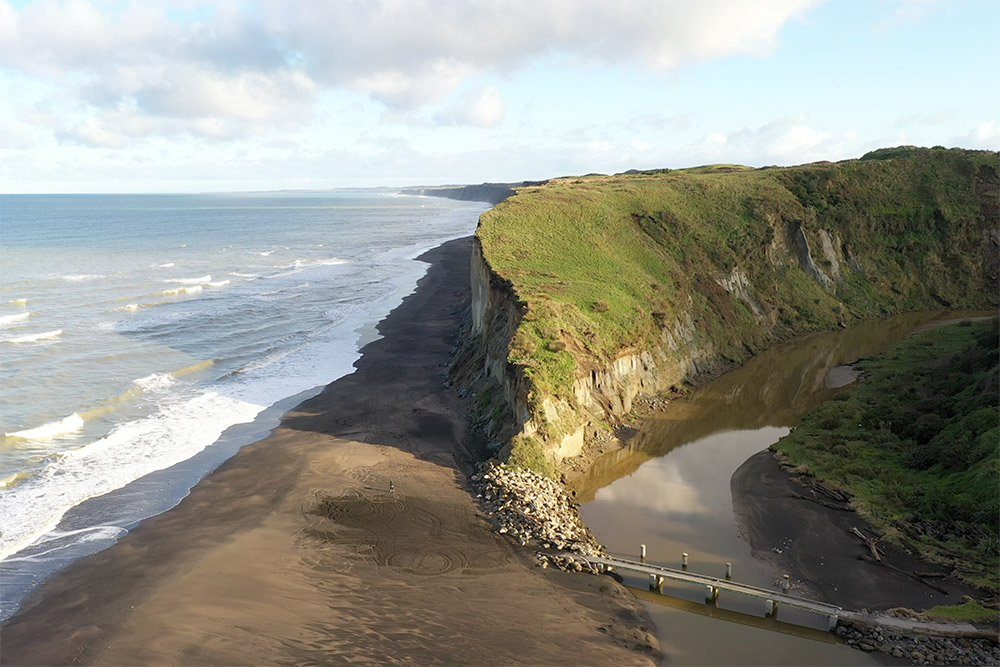Ngaa Rauru Kiitahi: The people are our wealth
Chapter 3
The people are our wealth
The qualification for filing a treaty claim was a legal entity. Before long, the Ngaa Rauru Kiitahi Iwi Authority was established.
Explore Chapter 3
Video transcript
Pootonga Neilson, Inaugural Chair, Ngaa Rauru Kiitahi Iwi Authority:
‘There was a waka there. We used to go there regularly, go fishing there, especially in certain times of the year when it was that time to go fishing. I only ever went out on that waka once.
The Waitootara County Council told us, “You can no longer camp at Waikaramihi’, and the old people said to me, ‘Well, we want you to go to Wellington and find out what’s going on’.
The story they told me was that Rima Wakarua, one of our koroua way back, had gone to Wellington and had these places set aside as reserves. So that’s what I did, I went there but I could find no trace of any of our mahinga kai fishing camps being set aside. So I had to come back, talk to the old people and they said to me, ‘Well, you had better do a research and file a claim for Ngaa Rauru Kiitahi to the Waitangi Tribunal’.
I said to them, ‘We’ve got to have a legal entity’. ‘Oh no kei te hee teenaa. Ko wai raatou? Who the hell do they think they are?’ And I said, ‘Well, they’re not going to talk to Ngaa Rauru Kiitahi unless we’ve got a legal entity’.’
legal entity: noun LAW
1. an individual, company, or organisation that has legal rights and obligations.
Pootonga Neilson, Inaugural Chair, Ngaa Rauru Kiitahi Iwi Authority:
‘After many discussions they agreed that yes I can set up a legal entity but if and when there is a settlement, the puutea must be divided between the hapuu, and the legal entity must be thrown away.
The qualification for filing a claim was a legal entity. So I set up a legal entity, called the Ngaa Rauru Kiitahi Iwi Authority.(Circa 1986)’
Mike Neho, Ngaa Rauru Kiitahi Iwi Authority:
‘The Ngaa Rauru Kiitahi Iwi Authority has very few assets. There aren’t many assets back home, with the iwi that is. We received a small sum of money from the Sealords Deal claim. A very small sum is received annually, and it is distributed across each of the marae.
A meeting was held. At that meeting we explored strategies for building funds over the coming years.’
‘Carolyn Miri Young, Administrator, Ngaa Rauru Kiitahi Iwi Authority:
‘Te Pahunga and I, he was the chairperson of the IA at the time, and I was the secretary and we were on our way back from a hui, um, and settlements had been bandied about, you know, Ngaati Ruanui had just come through and we were watching all of these things. And he said, ‘You know, should we go there?’’
Te Pahunga Marty Davis, Chair, Ngaa Rauru Kiitahi Iwi Authority:
‘There were people around our age group that decided that, well no good moaning about it, grumbling about it, let's put our hand up, let's get involved, we’ve got the fire in our belly to do this and we think we got the smarts as well.’
Mike Neho, Ngaa Rauru Kiitahi Iwi Authority:
‘At that same meeting, we thought about pursuing a major claim, that is, a treaty settlement. When the meeting ended, we began to prepare that pathway.’
Carolyn Miri Young, Administrator, Ngaa Rauru Kiitahi Iwi Authority:
‘We scrolled through the screeds of paper around how we were going to get there. It was like holey–moley! There’s only a few of us to do this! And it’s going to cost us thousands. I mean, we were a really poohara iwi!’
Mike Neho, Ngaa Rauru Kiitahi Iwi Authority:
‘So, our first task was to seek support from each marae, from the descendants of Ngaa Rauru Kiitahi, to endorse our intentions of pursuing a claim. We travelled around the country, we travelled the country. Five of us went to each of the meetings held in Auckland, Hawkes Bay, Te Arawa, Rotorua, Hamilton, Wellington, Taranaki, Christchurch, and Southland.
We went to seek their support. We presented our case to the people and sought their support. At that stage, it was agreed. All of the marae agreed. All twelve marae gave us their support. In those times, many of our matriarchs, our elders strongly supported us.’
Carolyn Miri Young, Administrator, Ngaa Rauru Kiitahi Iwi Authority:
‘We’d go for days around the country. And talking to our uri, all over the place, um, it was, it was daunting.’
Te Pahunga Marty Davis, Chair, Ngaa Rauru Kiitahi Iwi Authority:
‘Hui. I don’t think I slept in my own bed for three years. Hui, hui, hui, hui all around and not only that, you had to go back around again, and you have to keep communication, and being very clear with our legal teams, about what it is we want.’
Karanga Morgan, Paakaraka Marae delegate:
‘I believed it was a brilliant thing, it was a good idea. It was something that we needed to pursue to ensure that our mokopuna didn't endure the struggles that we were going through. I supported it 110%.”’
Leanne Hamilton–Wiari, Te Ihupuku Marae delegate:
‘I returned home and it was to go back to my marae. To reconnect and like many of us you get given a job, and one of my jobs was as a delegate.’
Karanga Morgan, Paakaraka Marae delegate:
‘We even developed some powerpoints to travel around to the various marae to actually share, hey let’s consider this, is this a good thing, let’s get onboard.
We had gone to the extent of creating waahi tapu portfolios for each of the marae so they could discover not only who they were and what their whenua was about but understand the process of where they were going. So it was a form of empowerment rather than dependency so I looked at it from that point of view.’
Leanne Hamilton–Wiari, Te Ihupuku Marae delegate:
‘I was totally unaware of what governance meant and what that involved, I was happy to go back to my marae and do the mahi there. So learning what that meant, a delegate meant, was part of it, and then the negotiation started.’
Te Huia Bill Hamilton, Iwi Negotiator:
‘There was one issue in particular where they slipped in, tried to slip in, ‘...and the Crown has been fair and reasonable and in its dealings with Ngaa Rauru Kiitahi’, and of course we brought that home and that created a bit of ruction, and in particular for one marae.’
fair: adjective
1. treating people equally without favouritism or discrimination.
reasonable: adjective
1. having sound judgement; fair and sensible.
Te Huia Bill Hamilton, Iwi Negotiator:
‘We had to really work hard on that particular one piece of wording that had been in all of the other agreements to deal with because we knew that the Crown had not been ‘fair and reasonable’ in its dealing with Ngaa Rauru Kiitahi, and probably with the other iwi, but all of the other iwi that had settled had had it in there. And there was one in particular, one delegate who said that's a load of rubbish.’
load: ləʊd/ noun
1. [countable]
the total amount of something that something can carry or contain
rubbish: /ˈrʌbɪʃ/ noun
2. load of rubbish, nonsense, etc. used to emphasise that something is wrong, stupid, bad, etc.
Te Huia Bill Hamilton, Iwi Negotiator:
‘And of course we brought that home and that created a bit of ruction.’
Leanne Hamilton–Wiari, Te Ihupuku Marae delegate:
‘Each time we get an update I’m thinking, how does it match that statement, how does that process match being honourable, that this is a fair process for us.
Naive and trusting, you know, when you go into negotiations, is it not about finding common ground, finding understanding.
And I trusted, well I naively thought that's what the Crown was doing. That they were gonna go and do their research, we’ll give them some information, they’ll go away to do some research, they’ll come back and put their side of the story to that. And then there'll be negotiations about what that might look like.
I naively thought that all this Crown land that was taken for the best of public use, the schools, the post offices, the railway lands, that were not being used in our rohe, they were closed down, I thought give it back, give it back. That's not how it works, that paper isn’t blank on their side.
And I think a lot of our people are under that impression, in that ‘well why didn’t we get all our land back? All that land that they said that they stole, why don’t we get it back?’
There’s so many other complications around that.
As more information came in, I guess we hear more from the negotiating team about some sacrifices, some sacrifices that we were making or that they were suggesting we might consider to make to enable the process to continue with the aim of us reaching agreement. How is that honourable?
There was always something that we had to give up to enable us to proceed through the next steps of the process.
Yet again we were giving and it didn't feel like an honourable process.’
Te Huia Bill Hamilton, Iwi Negotiator:
‘It took us six months to find some wording because they wanted to have the words ‘fair and reasonable’, and the only way we could work it out was for that to be an aspiration for the Crown, rather than to be a historical record of the Crown’s performance. And so we got through it that way but we had to please people back home on that particular one because although other iwi had accepted it, you know, our people wouldn’t.
But that's just an example of how they’d slip in little clauses. You know they’d just slip in little clauses that would, I think, you know you’d think in many ways, that it’s clearing themselves of fault and blame, and presenting them as ‘fair and honourable’ people, and they weren’t.’
Karanga Morgan, Paakaraka Marae delegate:
‘With the Crown then coming into the picture what I knew as ‘we go’, swiftly became ego. Where did we fit in the equation of settlement? Things were changing, the rules appeared to be changing and for all the folks that were involved at that time.
And I would never ever criticise their commitment to Raurutanga, because our people were passionate about Rauru, Rauru Kiitahi. They are humble people, they are solid people but I didn't agree with some of the decisions that had gone down at that time. I found some of the things were quite challenging for me within my own tikanga, within my own processes of understanding who I was as Rauru.
It was slowly starting to challenge those sorts of things.’
Mike Neho, Lead Negotiator:
‘There were two, maybe three important issues. One was the land. One was the size of the fiscal redress. Another was the rules of the Adoptions Act.
The Crown was adamant that Ngaa Rauru Kiitahi adhere to the rules of the Adoption Act.’
The Adoption Act 1955 acknowledges legally adopted children as Ngaa Rauru Kiitahi descendants, even though they may not have actual genealogical ties to the iwi.
However, the Act does not facilitate for nor does it recognise the tradition of ‘whaangai’ or ‘taurima’.
The negotiation team took great exception to the Crown defining and dictating who was and was not Ngaa Rauru Kiitahi.
Te Pahunga Marty Davis, Chair, Ngaa Rauru Kiitahi Iwi Authority:
‘Ethically and morally we didn’t accept that at all. You’re Ngaa Rauru Kiitahi by toto and that's it.’
Mike Neho, Iwi Negotiator:
‘We fought hard with the Crown over that issue.’
Te Pahunga Marty Davis, Chair, Ngaa Rauru Kiitahi Iwi Authority:
‘When they highlighted the fact of, under the Adoption Act, which is different from ‘whaangai’, you know, those people who are legally adopted to Ngaa Rauru Kiitahi are, for the purposes of the Act, are Ngaa Rauru Kiitahi.’
Mike Neho, Iwi Negotiator:
‘If you were a person of South African descent, why would you be entitled to the benefits derived from the claims? The child is not from us. That is one point that was made.”’
Te Pahunga Marty Davis, Chair, Ngaa Rauru Kiitahi Iwi Authority:
We said, rubbish, we disagree with it.’
Mike Neho, Iwi Negotiator:
‘We didn’t agree because we have our own understanding of what a whaangai and a taurima is.
What we said at that time was that a ‘whaangai’ is a child that resides within the community and lives at the paa, then it is for the paa, the parents of the paa to raise the child, but the child doesn’t reside in any particular house indefinitely.
A ‘taurima’, that is different. If a child is ‘taurima’, so and so become parents to that child, they care and grow them throughout their entire lifetime, they are not returned to the home of their biological parents.
That was the agreement of our discussions at that time. The Crown didn’t agree. They said, ‘No, you must comply with the Adoption Act’.’
The Crown also provided definitions of what constituted an ‘ancestor’ and a ‘claimant’ in the context of the Deed of Settlement.
An ancestor means;
...an individual who exercised customary rights within the rohe of Ngaa Rauru Kiitahi after the 6th February 1840….
A claimant is;
a descendant of a Ngaa Rauru Kiitahi ancestor, or who is an [legally] adopted member of Nga Rauru Kiitahi.
Karanga Morgan, Paakaraka Marae delegate:
‘Whaangai didn’t have voting rights. And I didn’t believe, for me, that encroached upon my whakapapa. I have a brother who is whaangai.
I chose to withdraw from the whole process of settlement. That didn't mean I wasn't Rauru. It just meant at that time I didn't support where the Iwi, the direction that Iwi was going with the settlement. I found it contradicted us as a people.
That didn't mean we didn’t attend other hui. I just felt that I would stick to things that I believed were right and in keeping with us as a whaanau.’
Mike Neho, Iwi Negotiator:
We agreed in regards to ‘whaangai’. We agreed for the sake of the settlement. The arrangement was that we would sign, then we, Ngaa Rauru Kiitahi, would sit down with the Crown to change that matter so that it would reflect the ideals of Ngaa Rauru Kiitahi pertaining to whaangai.’
Te Pahunga Marty Davis, Chair, Ngaa Rauru Kiitahi Iwi Authority:
‘We put up a hell of a fight and it was virtually a walk away. I can remember the night before we were ready to sign. We said, we will let this go to get the legislation across the line, and tomorrow we’ll change it. This will be the first thing we’ll do.
So they weren't willing to change their stance on that. The Adoption Act is a law of the land and you should comply with that. So we wrote it in, agreed with it and wrote it out the next day.’
The following changes were made;
…it is for Ngaa Rauru Kiitahi, in accordance with Ngaa Rauru Kiitahitanga, to determine who is a member of Ngaa Rauru Kiitahi…
…Ngaa Uki o Ngaa Rauru Kiitahi is determined by whakapapa and…
…adoption does not confer whakapapa on an individual…
Wilcox, J. (reporter), Te Karere, TVNZ:
‘This is the welcome of the Associate Minister of Maaori Affairs to the gathering for the signing of the deed between the Crown and Ngaa Rauru Kiitahi at Kaipoo Marae.
But not every member of the iwi was in favour of the agreement. There was some protest when the contract appeared, and the idea that they had not yet been part of the negotiations.’
Mike Neho, Lead Negotiator :
I feel sorry for our relations that do not support today, those that do not really know the small print. They look at the paper, the newspaper of the Paakehaa. And they say this and that. Some of that information is incorrect.’
Mike Neho, Lead Negotiator :
‘Our relations were outside scolding the approaching Crown that they did not support the AIP, the Agreement in Principle. I thought to myself, I was the Chair at that time, why were our relations sitting outside? There was no reason.
Come here. Sit down on the orator’s bench and lay down your concerns before the Crown, don’t sit outside, shouting at and rebuking the Crown. Come here. Speak face to face.
So I went out. I went out to get them and they came inside. Their speaker sat on the orator’s bench. He was given the first part so that he could speak, and so that he could put forth the reasons why they didn’t agree with the AIP. That was the right thing to do. Don’t growl at them because they have their own points of view. Come here. Lay it out.
At the end of that day, it was signed. Was there still a gripe? Yes. Was the dust still being kicked up? Yes. But it had already been settled, and the people of Ngaa Rauru Kiitahi had agreed to the claim. So things must continue, look ahead. But we must not forget to listen to those who do not agree.’
Pootonga Neilson, Ngaa Ariki, WAI772 claimant:
‘Up to the time the settlement was signed, Taranaki whaanui never relinquished our self–determination or the fight for our self–determination. They decided to sign the settlement. I resigned as part of the claims process and as a negotiator for the claim, I resigned.
My attitude at that time was I need to file a claim on behalf of my own hapuu, Ngaa Ariki. And we want to separate from the Ngaa Rauru Kiitahi Iwi Authority and have our own claim.
There were five negotiators on behalf of Ngaa Rauru Kiitahi. Two of us said no, do not sign. The other three signed it. They had a meeting without us two, this was Julian Broughton, who didn’t agree. So they went ahead and signed, and that was that.’
The Wai 772 claim questioned the mandate of the Ngaa Rauru Kiitahi Iwi Authority….
It also alleged Ngaa Ariki were prejudicially affected by the Iwi Authority who were imposing conditions on the hapuu – conditions that were initially imposed on the Authority by the Waitangi Tribunal and the Office of Treaty Settlements.
Pootonga Neilson, Ngaa Ariki, WAI772 claimant:
‘I was chairman of Waipapa Marae Trust on behalf of Ngaa Ariki and several other hapuu and iwi who belonged in that area. I persuaded them that we should have our own claim.
The Office of Treaty Settlements didn’t allow it and a majority of the members of the settlement body at the time, the Ngaa Rauru Kiitahi Iwi Authority – that I set up in the first place, they agreed with the Office of Treaty Settlements that Ngaa Ariki claims should be amalgamated with the settlement, just like every other hapuu.’
Mike Neho, Lead Negotiator:
‘The Crown would not allow for one to go it alone, it had to remain with the iwi collective. It wasn’t just Ngaa Ariki. Whenuakura was another who withdrew their support. In the end, at the time it was signed, they agreed. They all agreed with it, Waipapa was one. Some of Ngaa Ariki did not agree but the majority of Ngaa Ariki descendants did. Just like Whenuakura.
Consequently, the settlement was signed in 2003. The data showed that 67% of those who were eligible to vote, voted. 96% of those supported. So, there it is. It was mandated by the iwi.’
Pootonga Neilson, Ngaa Ariki, WAI772 claimant:
‘The iwi is a spiritual entity that binds us all together. When an issue arises, and the war party comes, the iwi appears, they come to fight on behalf of the hapuu.
When the matter is resolved, the iwi go back to sleep, and the hapuu retain their mana motuhake. Their absolute independence. Their absolute self determination – is the Paakehaa term for mana motuhake – self determination. And that belongs to the hapuu, not to the iwi.’
The desire to pursue a full and final treaty settlement with the Crown became the focus of the Ngaa Rauru Kiitahi Iwi Authority.
I was totally unaware of what governance meant and what that involved, I was happy to go back to my marae and do the mahi there. Learning what that meant was part of it. Then the negotiation started.
I naively thought that all this Crown land that was taken for the best of public use, the schools, the post offices, the railway lands, that were not being used in our region, they were closed down, I thought give it back, give it back.
And I think a lot of our people are under that impression. Well why didn’t we get all our land back? All that land that they said that they stole, why don’t we get it back? There’s so many other complications around that.
There was always something we had to give up to enable us to proceed through to the next steps of the process.
- Leanne Hamilton-Wiari, Te Ihupuku Marae Delegate
We had gone to the extent of creating wāhi tapu portfolios for each of the marae so they could discover not only who they were and what their whenua was about but understand the process of where they were going.
So it was a form of empowerment rather than dependency so I looked at it from that point of view.
- naa Karanga Morgan, Paakaraka Marae delegate.
There were three major issues to consider. The land; the size of the fiscal redress; and the Adoptions Act 1955.
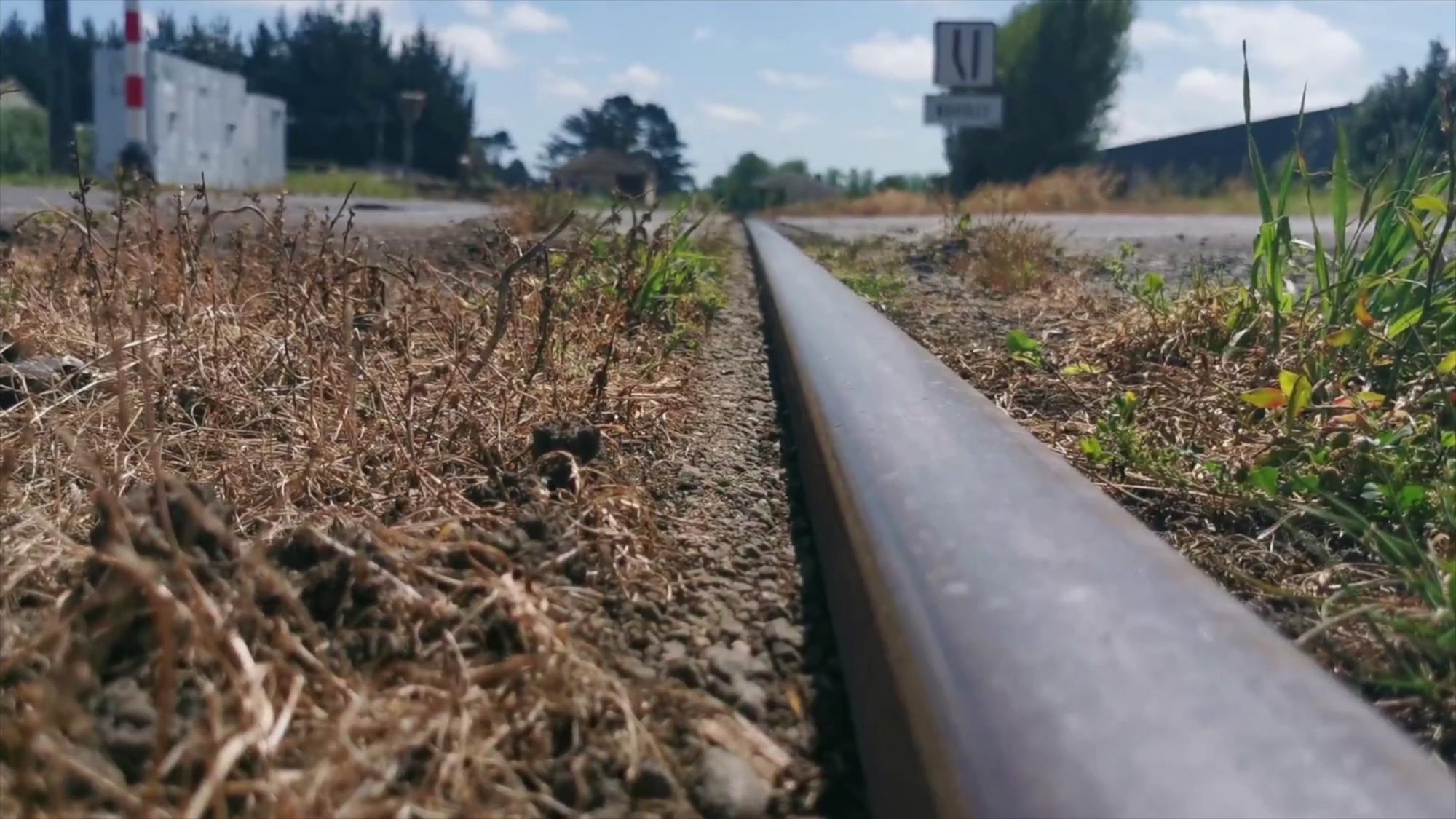
The Adoption Act 1995
The Adoption Act 1955 was a major sticking point for Ngaa Rauru Kiitahi.
The legislation acknowledges legally adopted children as descendants of Ngaa Rauru Kiitahi, whether or not those children have genealogical ties to Ngaa Rauru Kiitahi.
Furthermore, the Act does not facilitate for or recognise ‘whaangai’ or ‘taurima’.
The negotiation team took great exception to the Crown defining and dictating who was and was not Ngaa Rauru Kiitahi.
Ethically and morally we didn’t accept that at all. You’re Ngaa Rauru Kiitahi by toto and that's it. When they highlighted the fact under the Adoption Act, which is different from ‘whaangai’, those people who are legally adopted to Ngaa Rauru Kiitahi are, for the purposes of the Act, Ngaa Rauru Kiitahi. We said, rubbish, we disagree with it.
- naa Te Pahunga Marty Davis, Inaugural CEO, Ngaa Rauru Kiitahi Iwi Authority
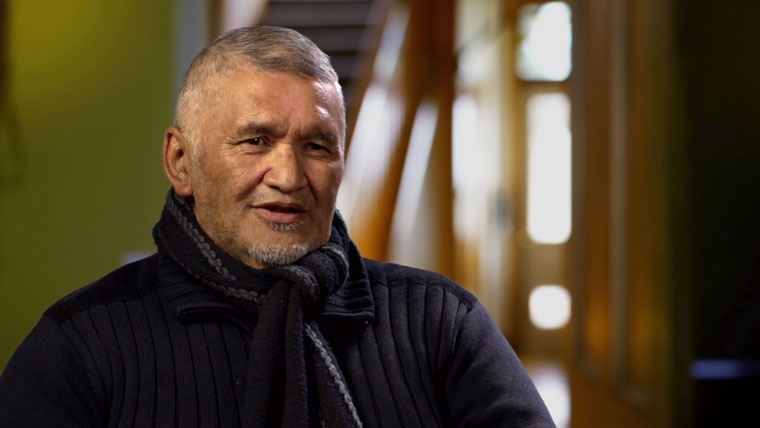
We fought hard with the Crown over that issue. If you were a person of South African descent, why would you be entitled to the benefits derived from the claims? The child is not from us.
That is one point that was made. We didn’t agree because we have our own understanding of what a whaangai and a taurima is.
That was our arrangement at that time. The Crown didn’t agree. They said, ‘No, you must comply with the Adoption Act’.
- naa Mike Neho, Iwi Negotiator
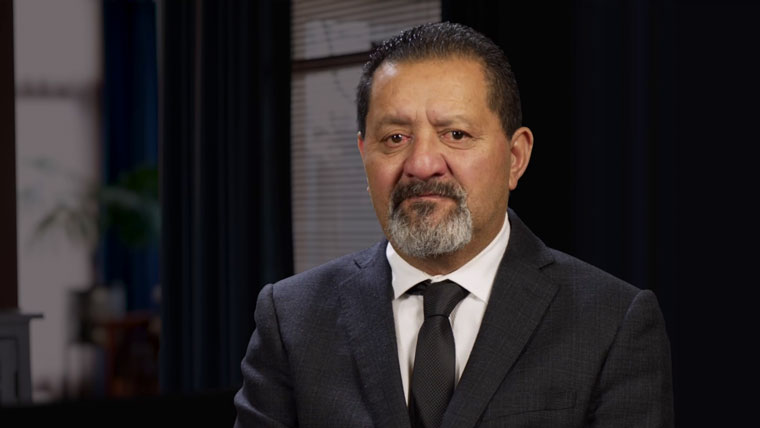
WAI772 Ngaa Ariki
Pootonga Neilson believed that up to the time the settlement was signed, Taranaki whaanui never relinquished its independence or the fight for its independence.
They decided to sign the settlement. I resigned as part of the claims process and as a negotiator for the claim, I resigned.
My attitude at that time was I need to file a claim on behalf of my own hapuu, Ngaa Ariki. And we want to separate from the Ngaa Rauru Kiitahi Iwi Authority and have our own claim.
There were five negotiators on behalf of Ngaa Rauru Kiitahi. Two of us said no, do not sign. The other three signed it.
- naa Pootonga Neilson, WAI772 claimant on behalf of Ngaa Ariki.
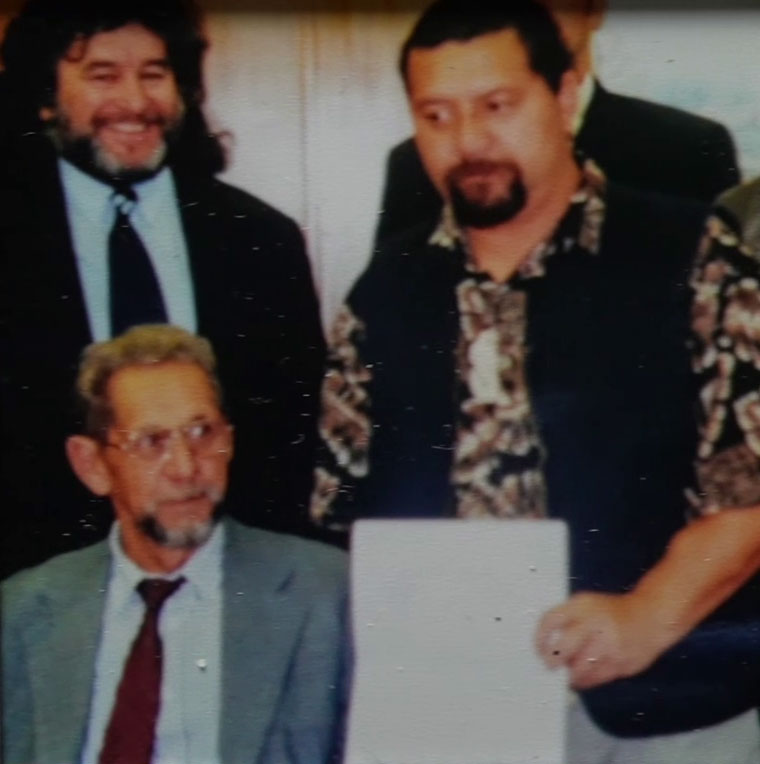
The Wai772 claim questioned the mandate of the Ngaa Rauru Kiitahi Iwi Authority.
It also alleged Ngaa Ariki were prejudicially affected by the Iwi Authority who were imposing conditions on the hapuu, conditions that were initially imposed on the Authority by the Waitangi Tribunal and the Office of Treaty Settlements.
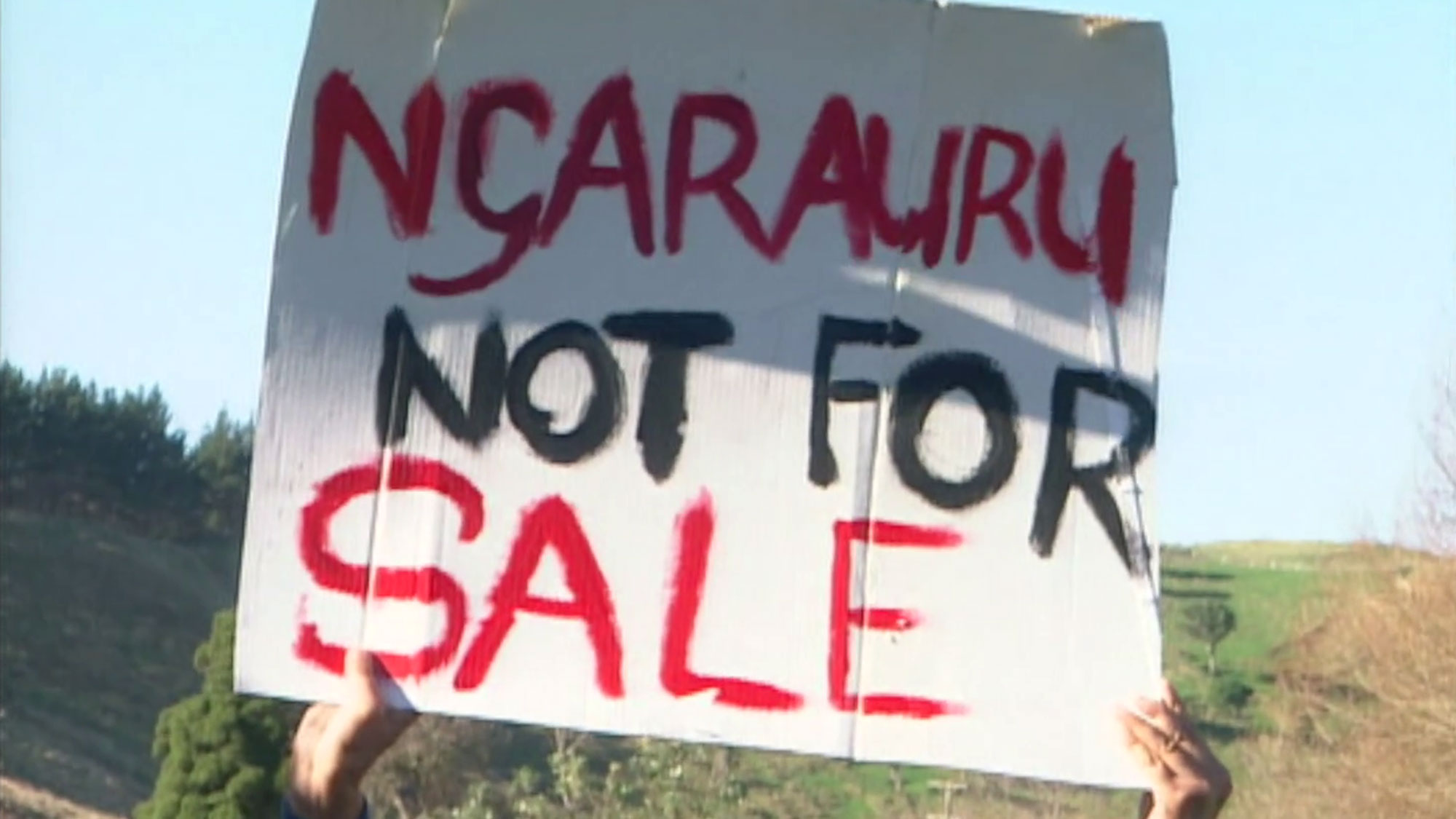
Notes and credits
Main image: Waikaramihi was once a thriving food source for Ngaa Rauru Kiitahi.

